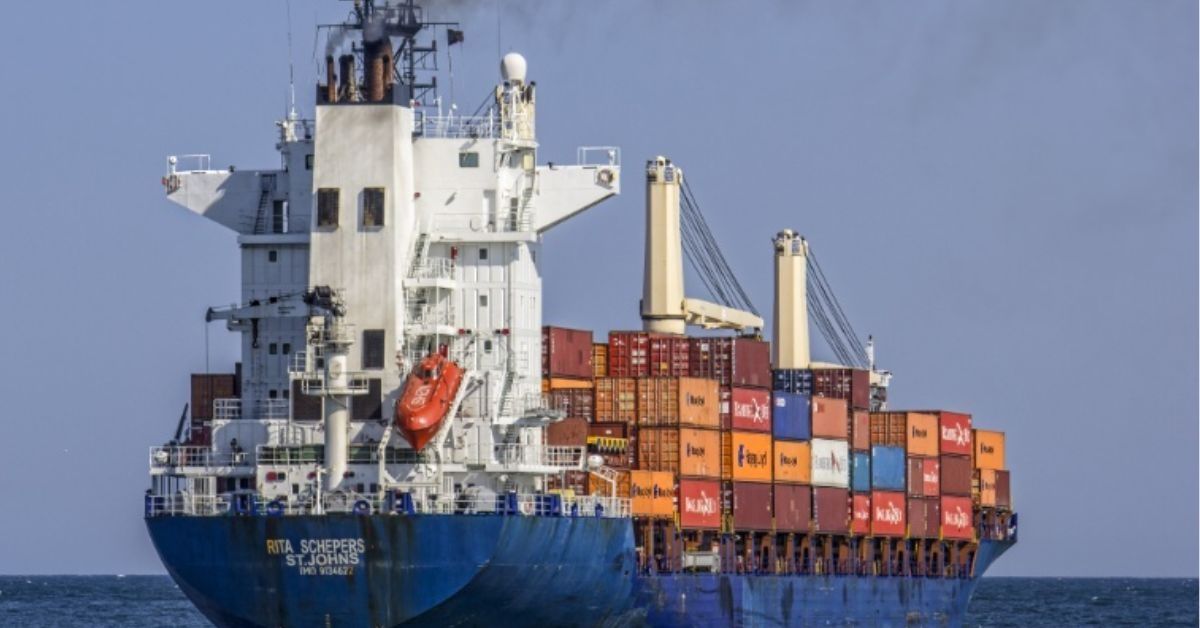Some of the biggest names in ship reinsurance are days away from ceasing to cover key war-related risks for vessels going to Russia and Ukraine, a potential source of alarm for shipping firms moving everything from oil to grains.
Hannover Re and Munich Re are among reinsurers who have warned that they will cease to underwrite any kind of risks — even indirect ones — related to the conflict in Ukraine from the start of next year, according to people familiar with the matter.
“The major German reinsurers and others are looking to exclude losses emanating from or linked to Russia and Ukraine war,” said Chris McGill, class underwriter for cargo at the insurance company Ascot Group, declining to name specific firms. “This is the first time we’ve ever had to contemplate a material change to our reinsurance program.”
The potential pullback by reinsurers comes after many have seen hits to their results from the war. Hannover Re said it set aside a reserve of 331 million euros ($351 million) in the first nine months of this year for possible losses tied to the conflict.
Reinsurers are pushing to ensure that the price of cover reflects the full extent of the risk involved, said Marcus Baker, who’s the global head of the marine and cargo practice at Marsh, one of the world’s largest insurance brokers.
Risk Sharing
“The concern for most reinsurers at the moment is the aggregation of exposures and therefore potential losses arising from one event,” he said. “For example, all of the aircraft that were stuck in Russia across multiple clients would have resulted in one loss when Russia confiscated all of those planes.”
If a solution isn’t found, some owners and their first-tier insurers could have to take on a bigger slice of risk for ships sailing to the two countries. It remains unclear at this stage if there’s scope for Hannover Re, Munich Re or others to relent, or how much appetite there is from elsewhere to fill the void.
War-risk cover spans numerous things including bombs, torpedoes, terrorism, external attacks and vessel seizure.
Representatives for Hannover Re and Munich Re declined to comment. Other reinsurers are thought to be taking a similar approach to the two firms.
Reduce Limits
The less that reinsurers cover, the greater the onus on insurers. Some will likely have to reduce what they offer — forcing shipowners into a rush to try to find alternatives, or even operate with less cover.
“We’ll have to reduce the limits we put up,” McGill said. “That will force rates to increase as you’ll get an automatic reduction in supply.”
Higher premiums and a lack of cover threaten to complicate exports of key raw materials, potentially adding to supply chain chaos and global inflation pressures if shipping gets snarled.
While sanctions on Russia aren’t thought to be a direct motive for the reinsurers’ move, they nevertheless make handling the nation’s commodities more complicated.
Anyone who wants to tap UK or European insurance for Russian crude can only do so if they pay $60 a barrel or less for the cargo. A similar mechanism will begin for refined fuels in early February.
Negotiations between insurance providers and their reinsurers happen once a year and are often contentious. This year’s talks have been particularly fraught because of the war, the people said.
If the big reinsurers do ultimately stop covering Russia and Ukraine marine business, shipowners might turn to insurance from Chinese or Turkish firms, according to Denis Shashkin, a P&I correspondent at the major Russian port of Novorossiysk.
“In the short run, premiums could get higher, but in the long-run it’s unlikely to make a big difference,” he said. “Shipowners may decide not to insure cargoes, but they need to get P&I insurance in order to have their vessels hired by charterers.”
The wording of the exclusion clauses, and the fact that they span indirect risks, is a cause for concern because it’s unclear what other trades might be impacted, McGill said.
So far, these things haven’t been clarified, he said, echoing the views of several other industry officials.
“If we get another Arab spring related to food price increases are you going to say to us we don’t have reinsurance for that because it’s being caused by or directly linked to the war?,” he said. “They can’t answer that.”






